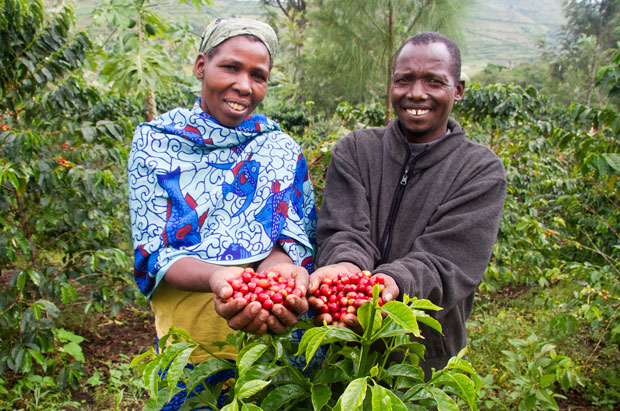
By Kofi Adu Domfeh
World Food Day 2016 has the global message: “Climate is changing. Food and agriculture must too.” This echoes weather-related disasters hitting vulnerable farmers, fishers and pastoralists in Africa.
According to the Food and Agriculture Organization (FAO) of the United Nations, growing food in a sustainable way means adopting practices that produce more with less in the same area of land whilst using natural resources wisely.
It also means reducing food losses before the final product or retail stage through a number of initiatives including better harvesting, storage, packing, transport, infrastructure, market mechanisms, as well as institutional and legal frameworks.
Most agricultural systems south of the Sahara are climate dependent, with more than 95 percent of farmed land growing crops from rain-fed agriculture. African countries are already suffering from food insecurity due to low productivity because of degraded soils, droughts, floods and a lack of effective water management, among other factors.
But efforts are underway on the continent to encourage and upscale climate smart agriculture.
Participants from the recently-ended 2nd Africa Climate Smart Agriculture (CSA) Alliance Forum in Nairobi, Kenya, visited two farms that are using climate smart agricultural techniques and are yielding positive results.
Albert Waweru, a retiree from the police force, is an urban farmer from Kasalani sub-county in Nairobi, whose farm employs climate smart measures and sees him rewarded with a sustainable income from the proceeds of his 1.75 acre plot.
Waweru practices zero-tillage mixed farming on his modest land upon which he has vegetable greenhouses and livestock.
He has invested in a rain water harvesting system and has a number of storage tanks that have been installed underground in order to save on space.
“For me to keep good animals, I needed water 24hours so that my animals do not starve… I needed to think smarter. I decided to do water harvesting; any drop of rain that comes, I harvest,” he said.
Waweru’s 50 cows produce an impressive 290 litres of milk per day which he sells to schools and hospitals. The milk sales have been very successful to the extent that he is now unable to meet all the demands.
At the back of his plot, Waweru makes manure from his animals’ dung and bio-waste that is covered while being processed in order to reduce gas emissions. This too is a lucrative business as he is never short of customers for the manure.
The other animals on his farm are goats and chickens which also add to his income. Waweru informed the visitors that he would like to embark on biogas generation that he also wishes to sell to his neighbours for their daily power needs.
“The income sustains me and my family; nothing goes waste, whatever come I turn it into money,” said the retired police officer.
Participants from the Africa CSA Alliance Forum also visited a State farm on the outskirts of Nairobi that hatches fingerlings for sale to fish farmers.
The Samaki Tu farm, whose Swahili name means ‘Fish Only’ produces catfish and tilapia fingerlings – the catfish hatcheries use artificial propagation in greenhouses that are not climate dependent. Moreover, when temperatures rise, the fish breed even faster.
Samaki Tu farm is one of the Kenyan government initiatives set up to meet the high demand for fish, most of which used to come from Lake Victoria which has been overfished. With fish stocks around the world having gone down in the last decade, aquaculture is the smart route to take.
In Ghana, the Crops Research Institute (CRI) of the Council for Scientific and Industrial Research (CSIR) is implementing the Aquaponics-based Food System (AFS), which combines crop production with fish, poultry and small ruminant rearing.
The researchers explain the emerging venture of producing worms for composting, known as vermiculture, is a sound economic and environmental activity essential to produce organic crops that help to mitigate the changing climate.
The Africa Climate Smart Agriculture Alliance is spearheading implementation of the African Union Vision to reach 25 million farm households practicing CSA by 2025 (Vision 25×25).
The ability of farmers to apply new technologies and innovations is an important determinant of CSA adoption, acknowledged Mrs Estherine Fotabong, the NEPAD Agency’s Director of Programme.
“New technologies and innovations are costly and sometimes complicated to apply; so farmers must either have the resources, receive subsidies or are given incentives to adopt them. Availability of markets, especially for value added products can spur investment in new CSA technologies and innovations and therefore promote adoption,” she said.
The 2nd Africa CSA Alliance Forum commended the AU’s NEPAD Agency and partners for commitment to the vision but emphasised the need for a consolidated knowledge base on CSA technologies, practices, and initiatives, whilst special attention is given to smallholder youth and women farmers.
As the historic Paris Agreement on Climate Change is set to enter into force, just in time for the next climate change conference (COP22) in Marrakech, Morocco, the FAO is calling on countries to address food and agriculture in their climate action plans and invest more in rural development.
The global goal for achieving Zero Hunger is 2030 – an ambitious goal and one that cannot be reached without addressing climate change.
It is therefore critical to expose many more farmers and others in the agricultural value chain to walk the path of Albert Waweru in climate-smart agricultural ventures.
“By strengthening the resilience of smallholder farmers, we can guarantee food security for the planet’s increasingly hungry global population and also reduce emissions,” said the Organization is a statement to commemorate World Food Day 2016.











